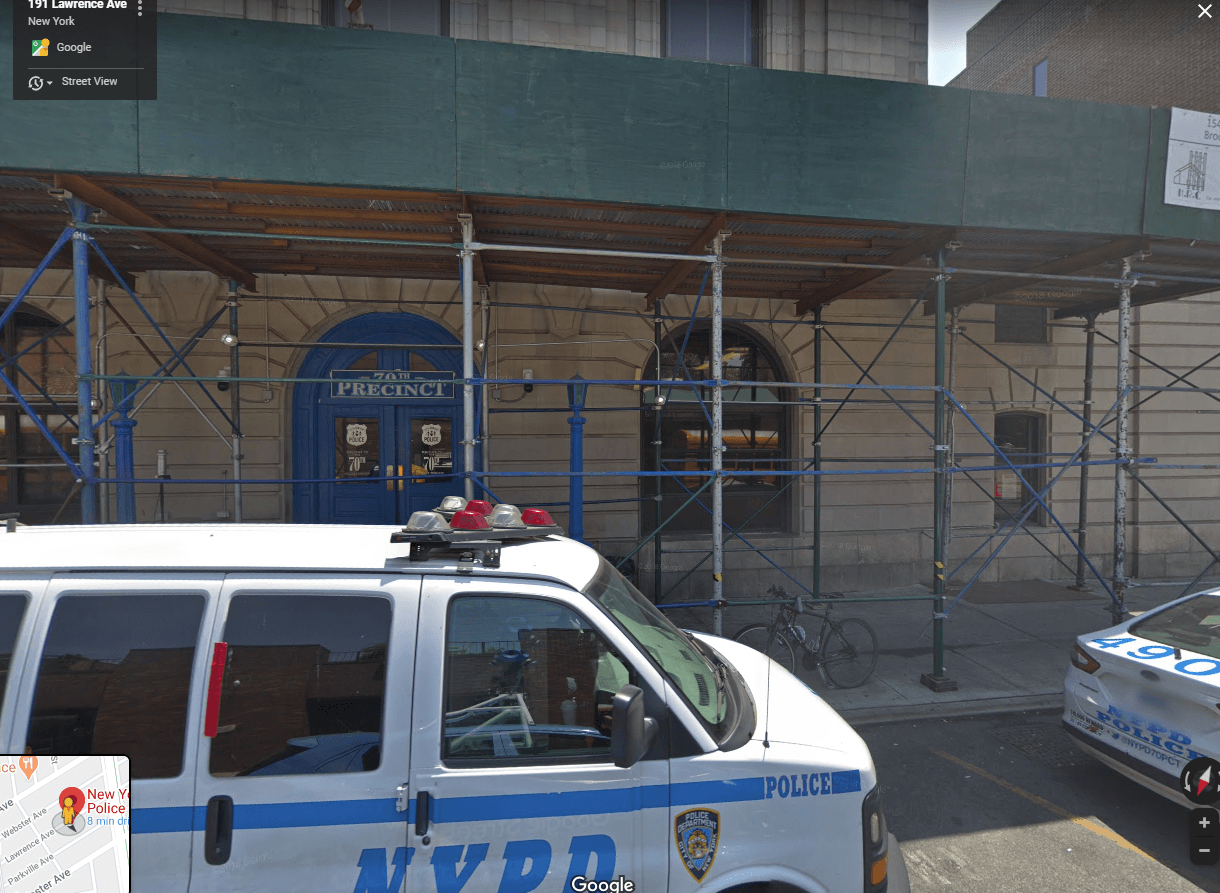How community can get a voice in choosing local police leadership: BP Adams says mayor should make it happen

Photo via Google Maps
BY HELEN KLEIN
SPECIAL TO THE BROOKLYN EAGLE
Should community activists get a chance to weigh in when the NYPD is picking the local precinct commander?
That’s exactly what’s been proposed by Brooklyn Borough President Eric Adams who wants the city to allow some community board members, along with members of precinct councils, to have a say in the selection of local precinct commanders.